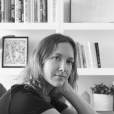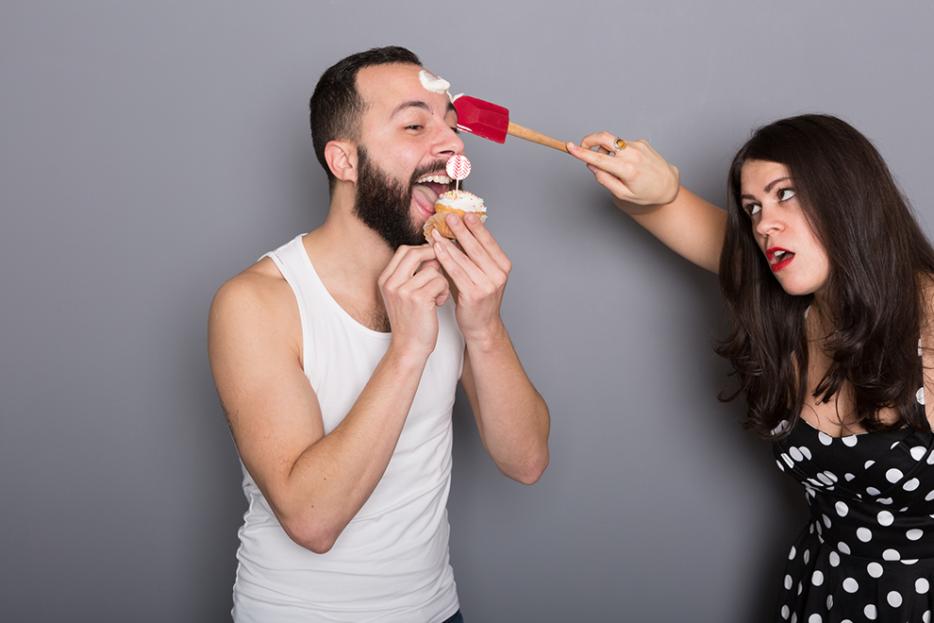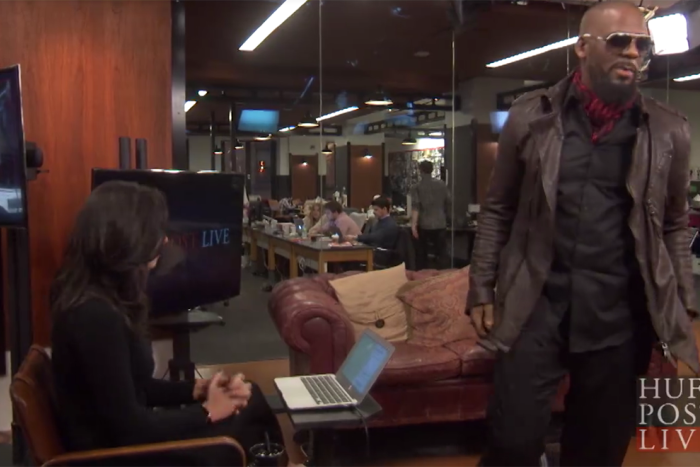At the beginning of the 1989 romantic comedy When Harry Met Sally, two virtual strangers (played by Billy Crystal and Meg Ryan) are forced by a mutual friend to road trip to New York together. The conversation quickly turns intense. Harry suggests that he has more of a “dark side” than Sally because he spends “days” thinking about death, which will make him more prepared when “the ship goes down.” Having none of it, Sally shoots back, “In the meantime, you’re going to ruin your whole life waiting for it.” Of course, they end up falling in love. Just like it would play out in real life.
In the third stanza of "When Harry Met Sally", a poem by writer-comedians Dina Del Bucchia and Daniel Zomparelli, other philosophical questions are posed: “What if Harry didn’t meet anyone? What if Sally met Harry? What if switching words would transform the outcome so drastically that Bruno Kirby played the leading man he deserved to be?” The work is part of Rom Com (Talonbooks, 2015), the duo’s book of poetry—in which every piece is written about romantic comedies. By using something so overtly mainstream to draw people in to something so often avoided, Del Bucchia and Zomparelli are shoving us into the car with a stranger and leaving us alone to hash it out. Maybe we can find love, too.
The best friends met at a Real Vancouver Writers’ Series event six years ago, at which Del Bucchia (who now helps organize the literary gathering) read a sex poem about Pamela Anderson. Zomparelli, who had just released his first issue of Poetry Is Dead magazine, asked to publish it. Fast forward to 2013, and at Zomparelli’s request, the duo started working on a shared Google Document in which they wrote poems about romantic comedies. After one year of writing, they found a publisher who said, “sure, that’s fine,” Del Bucchia jokes. The result is a sweetly curated collection that both embraces and completely tears apart the film genre. Some pages are worthy of laughing out loud ("You Need Abs to Be in Love" was written for Mila Kunis); others appear more sensitive ("Acting" describes the actions one takes when trying to feign interest in a partner). They dream up their own romantic comedies, make fun of real ones, pick apart scenes and characters and actors, all the while reminding us that love—and Hollywood’s idea of love—is ridiculous. But it’s also fun. And sometimes that’s good enough.
Sara Harowitz: So this whole idea stemmed from a breakup for you, Daniel, right?
Dina Del Bucchia: Daniel has suffered so many sadnesses.
Daniel Zomparelli: There was a lot of sadness going on. It was very messy. That’s why I was obsessively watching romantic comedies.
Dina: You were analyzing everything to figure out what love is.
Daniel: I was also obsessively watching Forgetting Sarah Marshall and just trying to find a movie that had that similar feeling of overcoming sadness through somebody being not nice to you. It’s where all poetry stems from: low self-esteem.
Dina: And anxiety about your own feelings.
It’s interesting that you use a medium that is very uncool.
Daniel: It’s definitely very uncool.
And rom coms are pretty uncool.
Daniel: Everything I like is uncool.
Dina: We’ve talked about this a lot, how poetry and rom coms are both super uncool, and it’s not really cool to say that you like them, and that’s why they go well together.
Daniel: But so many people like them.
Dina: So many people do, but it’s not a cool thing to say that you like. It’s cooler to say that you like Star Wars now than to say that you like rom coms.
Daniel: Ugh. Disgusting.
Dina [to Daniel]: I love you so much.
Your next book of poetry: Star Wars.
Dina: It’s called Star Wars: The Force Never Awakened.
Daniel: Go Back to Bed.
Dina: It’s so tired, The Force is so tired.
It’s interesting also that both poetry and rom coms are very romantic, one sort of traditionally romantic, and one in a very cheesy way.
Dina: Love poetry can be very cheesy, too.
Daniel: Unrequited love in both rom coms and poetry is so gross.
Dina: Unrequited love is always the grossest. I think for so long unrequited love was this thing that we assumed was kind of cute. “Aw, somebody really likes that person, and they never really noticed them.” That’s too bad, but really, that person probably did pick up on it, was throwing a million subtle hints.
Daniel: If you have unrequited love to the point where you need to write a poem, you’ve gone too far.
Dina: Or if you have to, write about what garbage you are for feeling that. That’s cool, I’m cool with that. Self-deprecating unrequited love poems are fine.
Daniel: Or if the thing you love is an inanimate object, then that’s the most perfect unrequited love.
Dina: In Forgetting Sarah Marshall, the actual protagonist suffers this heartbreak and realizes this person doesn’t love him. But there are so many humiliations that it’s not about him being like, “Well, you know, I’m going to do all those creepy things.”
He’s trying to get over it.
Dina: Exactly! He’s dealing with it himself. He’s like: “I have to take on my own pain, not put it onto this other person.”
So what drew you to poetry?
Dina: It’s super weird. I feel like there’s freedom and a surreal sort of strangeness. Also, not many people care about it, so you can feel more of that freedom just to do what you want and write about things that you’re interested in. It’s not like non-fiction where you have to write a memoir about your suffering to get on Oprah’s Book Club. It’s very freeing. I have the most fun when I’m writing poetry and thinking about it. When I’m writing prose I feel much more tortured.
Daniel: It’s so exhausting.
Dina: It’s so exhausting! That’s why I had to take a nap today.
Daniel: The reason I like [poetry] is because it’s unpopular. I know that’s the worst thing to say, but I have an anxiety disorder, so being in large public spaces or being viewed publicly too much freaks me out and sends me to my bed to hide … It’s really nice knowing you can have all these small, safe spaces within an artform and that it doesn’t have to be viewed by that many people, so it doesn’t have to be critiqued that harshly. There are gatekeepers in poetry but there are very few, because there’s nothing really to gatekeep.
Dina: People who are really successful at poetry are on such another level from the majority of poets.
Daniel: You could almost cut them off and not notice a difference.
Dina: Yes! They’re on a completely different level, they’re like Tom Cruise poetry stuff. It’s too far beyond what we experience in our normal poet lives. And I also just genuinely love poetry and like the variety that the genre allows for.
Daniel: It’s a very socialist artform.
Dina: It is! Good one.
Daniel: It’s the Thomas Mulcair of poetry. The Bernie Sanders.
Dina: An older white man with Liberal views. That’s poetry: slightly uncool, still kind of loved.
Daniel: Maybe too white.
Dina: I mean, of course it is.
What is was your working relationship like, writing together?
Dina: We were collaborating together on poems throughout the writing process, so it wasn’t just that one of us was writing and then we’d respond to the poem or we’d each be writing our own poems and then inputting them into the full document—we’d also get together and collaborate. That happened throughout the process, including editing.
Daniel: On the page-wise, we do everything quite similarly: our tone, our style of writing, how we write, how we edit, what we think is funny.
Is your focus on collaboration why you chose not to include who wrote each poem in the book?
Dina: Yes.
Daniel: It seemed also confusing to put who wrote each poem. Also, we forgot who wrote each poem.
Dina: There were many occasions where it felt like we were accusing the other person of writing the poem, but not because we didn’t like it.
Daniel [to Dina]: It took me a long time to realize that I was working on the 50 First Dates poem because I was certain it was yours. And then there was another one where you thought it was mine.
Dina: And then afterwards I remembered why it was mine, but even now I couldn’t tell you which poem that was in the book, what it became. But I do know that I was pretty insistent it was not mine, and that you wrote it. I think I liked it, maybe, and that’s why I thought it was yours: “Oh, this one’s too good, Daniel probably wrote it.”
Daniel: The one I wrote, I was like, “Dina’s just so mad at men.”
Dina: And then you were like, “That’s mine. Everyone’s mad at men, including me.”
What are your thoughts on the haiku, which seems to be having a moment in pop culture and on social media?
Daniel: It’s such a lazy form. You can mass-produce these little poems that aren’t that good, and don’t respect the nature it came from. The tradition of haiku was words that were so multifaceted that the poem meant more than just one or two things.
Who is your audience for this book?
Dina: I think to us, we wrote it partially for people that maybe don’t read poetry normally.
Daniel: I think, Dina and I, when we do readings, we connect better with people who wouldn’t necessarily be into poetry. Because we’re not very self serious, and we’re kind of weirdos.
Dina: I think in terms of our audience it’s definitely people who are interested in pop culture, and maybe don’t necessarily read poetry all the time—but this book hopefully allows them to enjoy some of it.
If someone’s not often reading poetry, they likely don’t realize it can be fun like this.
Dina: I think you can have that impression of any artform, where you kind of push back against it because of whatever preconceived notion you have about it. And you’ve never really gotten to experience enough of it to make an opinion. Or have time to enjoy it.
Rom Com is a good gateway drug to poetry.
Dina: Gateway drug! This is the marijuana of poetry. Every day at 4:20, open Rom Com to a page, just read a poem. Take a hit.
What is Vancouver’s poetry scene like?
Daniel: Vancouver’s pretty good about not being that cliquey.
Dina: There’s getting to be more crossover with slam and spoken word stuff.
Daniel: Verses Festival of Words has been really good about bringing it all together.
Dina: Verses has been amazing, I think it’s really made a big difference and I love it.
Daniel: Six years ago, I went to events and it was very cliquey. It’s one of the many reasons I started Poetry Is Dead. The conceptual, experimental poets were exhausting to hang out with, and you’d go to the other readings and it would be so flighty. It was so segregated, and I was like, “There are good writers in each of these genres.”
Dina: The thing with Real Vancouver Writers’ Series too, is—unless it’s specifically a poetry thing where we’re doing something for another festival—we never have just one genre. There are always multiple genres in a reading, because it’s very rare that you get to experience that. Usually if you go to almost any literary event, it’s fiction only, or poetry only, and there’s no crossover. And I think that’s another thing that happens in Vancouver more often. There are people reading non-fiction, there are people reading poetry. I think it makes a big difference. It brings different parts of the literary community together—it’s not just the poetry community. It’s more of a mix, a better cross section of who the writers are in this city, as opposed to who the people in the poetry community are.
Getting back to rom coms, aside from Forgetting Sarah Marshall, what were some other pinnacle movies for you?
Dina: I always talk about Moonstruck because it’s so wonderful. [Cher’s] such a great character in that film, she’s so captivating, she’s so funny. She gets to slap Nicolas Cage, which I’m sure is the goal of so many people in the world.
Favourite character in a rom com?
Daniel: Dionne in Clueless. Rita in Bridesmaids.
Is there anything we can learn from rom coms?
Dina: So many people are superficial and terrible.
Daniel [to Dina]: I feel like your response is always something about how romance can be about comedy.
Dina: Yeah! I think that is an important lesson: that romance can be about comedy. People want to laugh and feel nice inside.
Daniel: I’m also fine with rom coms teaching us nothing.
This interview has been edited and condensed.






